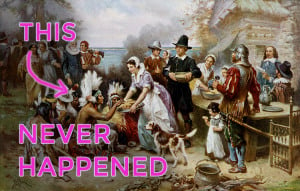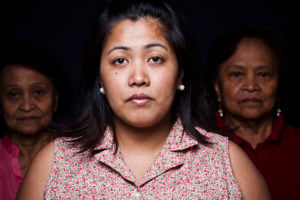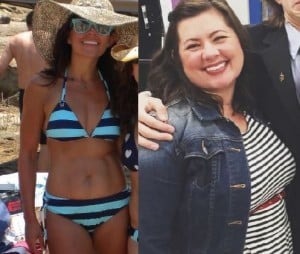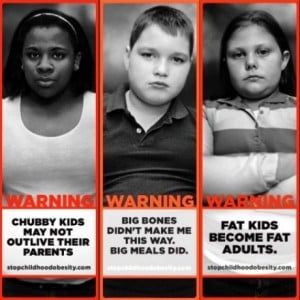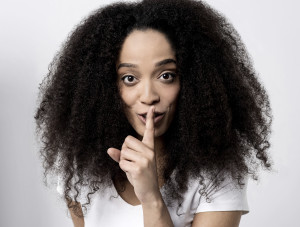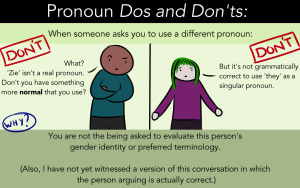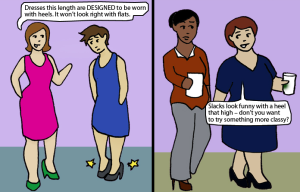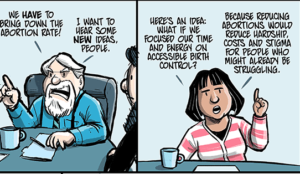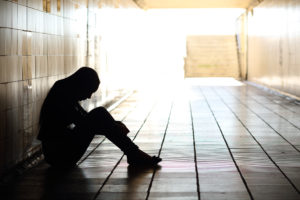
Silhouette of a young person, lit from behind, sitting in a tiled hallway.
I was twenty when the person I loved overdosed and died.
We’d met at a mutual friend’s party. I had seen him standing across the room and watched as he tucked his hair behind his ear every time he laughed. He had a sweetness, a vulnerability that I didn’t often find in my crew of working class, heavy metal loving friends. In fact, I was so taken with him that when I tried to do a casual walk by, I ended up walking right into a wall. Yeah – great first impression.
We spent that night talking and flirting. We fell asleep curled into each other on a couch, people still partying around us.
In the years that followed, we would hold each other’s secrets and help each other heal. I trusted him with my body after having been assaulted years before and he trusted me with confessions about his gender and sexuality.
He was one of the most tenderhearted people I’ve ever known. He loved and supported me unconditionally, even if imperfectly. His eyes were a clear blue, and he wore a shirt from the same band every day. At night, he would curl up beside me, just like on that first night.
When I told him I wanted to move to New York to finish school, he asked me to marry him. We fantasized about what our life together would be like, how we would decorate our apartment, and how many kids we might have. But in the end, I decided I needed to focus on school and told him I had to move to New York alone.
A few months later, he died after overdosing on heroin and crack in a Motel 6.
Someone was with him that night, but when he began to overdose, they left. Nobody was ever willing to name who it was, but I had an idea. And for years, I blamed her for killing him. But ten years later, she died just as alone as he did – and with her, my blame died, too.
I come from a white working class town in Ohio. People thought I was a prude because I was fourteen before I took my first drink. Many of my friends already had multiple stints in rehab or juvie by then.
I followed behind them, always ready to drive home or hold their hair back or go to their court date with them. I was good at this sort of thing. I’d learned by growing up with my mother – whose body I watched shrink in a matter of months while her addiction to methamphetamine grew.
Drugs were normal. They also terrified me.
For years after he died, I refused to be around anyone who used drugs, even weed. My anger and grief made it near impossible to sit beside someone who was stoned. All I could see when I looked at them was threat or loss or both.
My grief morphed into blame. I blamed him for dying. I blamed her for leaving him to die. I blamed my mother for all the violence her substance use made me vulnerable to. I blamed drugs. I blamed everyone who used drugs.
Ironically, years later, I ended up working in Harm Reduction.
Harm Reduction is “a set of practical strategies and ideas aimed at reducing negative consequences associated with drug use. Harm Reduction is also a movement for social justice built on a belief in, and respect for, the rights of people who use drugs.”
Working in Harm Reduction has forced me to reconsider everything I thought I knew (or felt) about drug use. It has made me kinder, more respectful, and more loving.
It is healing work. It is deeply political work. And, unfortunately, it is still stigmatized work.
But we can change that.
Our loved ones, our family, both blood and chosen, deserve so much more than silence and shame. They deserve our love, respect, and support.
It has taken decades for me to forgive them, to forgive myself.
Here are a few myths that I had to unlearn along the way.
Myth #1: Enabling Drug Users Is Bad
Growing up, I heard a lot about tough love and enabling. Tough love is why my grandparents moved my brother and me across the country from our mother.
We were encouraged not to enable my mother’s drug use, but it was hard to know what that meant. It made sense to no longer give her money – but what about our love, our attention, our hope?
Boundaries are necessary in all relationships. But I no longer believe that isolation and “tough love” actually supports people in developing a healthier relationship to their drug use.
Instead, it often increases the feelings of shame, abandonment, and worthlessness that might fuel chaotic substance use in the first place.
My family’s choice to cut my mother off was rooted in an understanding that she would have somewhere else to sleep, eat, and get support. I can’t imagine they would have made that choice if they thought it would put her at risk of violence.
This is a response rooted in the privilege of my mother’s white skin and her ability to pass as middle class. This is a sort of social currency that not everyone has access to.
Tough love assumes that people have other systems of support to rely on or that rehab is financially and culturally accessible to them. It’s individualistic and doesn’t address the roots of the issues.
It leans into the lie that if we can’t do it alone, then we don’t deserve to live.
My previous coworker, Daniel Raymond, wrote a piece reclaiming the word enabling. In fact, he explains, that he strives to be an enabler. That is, he strives to be someone who enables health, dignity, connection.
This sort of enabling requires us to know ourselves, our boundaries, and our baggage.
For example, I know that watching people actively do drugs is still a source of pain, trauma, and fear for me. This means there are several people in my life that I can’t spend time with. But I can still send them letters, birthday gifts, and texts. I can still tell them I love them and mean it.
I can do all of this without ever mentioning their drug use, because my love for them is not contingent on their sobriety.
This maintains a thread of care and connection that people can return to without shame.
Myth #2: Drug Users Can’t Be Trusted
In my experience, when folks say this, what they really mean is, “Someone in my life who uses drugs really hurt me.” And I get it. I’ve been there.
That said, it doesn’t make sense to link trustworthiness and sobriety. There are plenty of people who don’t use drugs and lie regularly. Similarly, there are drug users who are incredibly responsible and honest.
This is not to distract from the real harm that chaotic drug use can sometimes cause. People using drugs lie sometimes. But why do they lie? Because they’re terrible people? Because they’re inherently flawed? No.
Most often, the people in my life have lied when they were struggling to meet a need. They were trying to maintain access to something they felt was supporting them. Or to get the help they needed. Or to avoid jail. Or to avoid shame. Or to maintain custody of their kids. Or perhaps they lied to avoid the “tough” version of love.
I may not agree with their need, but that does not negate it.
People who use drugs are not inherently deceitful. But when we criminalize drugs and demonize drug users we make honesty impossible.
Myth #3: Drug Users Are ‘Addicts’
Not all people who use drugs are addicted. In fact most aren’t. Most people use drugs recreationally, experimentally, or socially.
We use the word addict like a weapon – the ultimate dismissal. Or at least I know I did. I grew up with an addict. I loved an addict. I survived an addict.
It was a word I used to protect myself while trying to regain some sense of control. It simultaneously distanced me from their behavior, while also identifying me as the person who was worthy of care and attention – not them.
I used it as shorthand to let people know I had struggled, all while invisibilizing or dismissing the struggles of those I loved.
Calling someone an addict reduces them to a singular aspect of their life, as if they are nothing more than their drug use. All of a sudden they’re no longer a full person. They are, at best, a tragedy and, at worst, a threat.
This sort of language is pathologizing and disrespectful. It allows folks to be treated with a violent disregard, while simultaneously being blamed for it.
Our loved ones deserve more respect than that.
Myth #4: Drug Users Don’t Value Their Lives
Actually, communities of drug users are leading the charge to reduce drug-related harm like overdose and the contraction of HIV and Hepatitis C.
Meanwhile, in most places in this country, it remains a criminalized act to practice Harm Reduction. You can’t hand out clean syringes. You run the risk of arrest when calling 911 for help with an overdose (despite 911 Good Samaritan laws in place in most states, which are largely unenforced or ignored by law enforcement). You can’t distribute naloxone, a drug that reverses opiate overdose.
In fact, many people don’t even know that naloxone (also referred to as “Narcan”) exists. Naloxone is a drug that is given at the time of an opiate overdose (like heroin, oxycontin, vicodin, and methadone). When administered, it has the ability to stop the overdose. Just like that. It’s even available in three different forms.
Naloxone could have saved the lives of people I love. But none of us had ever heard of it.
Let that sink in. There was a drug that could save their lives, but nobody ever told them it existed. And why? Because many people believe that providing people with access to naloxone enables drug use.
It took me a long time to stop blaming her for his death. But I can see now how much bigger it was than her.
If she been able to stay with him and call 911 without risking jail time or losing her son, I think she would have. Had she had access to naloxone, I trust she would have used it. She loved him, too. She didn’t want him to die. But we didn’t leave her with many choices.
The price of naloxone continues to increase.
According to Politico, the auto-injector (by far the easiest to use, as it even talks you through all the steps!) has increased from “$575 to $3,750 per two-dose package in just two years.” The cost of two vials of a generic form of naloxone increased from $1.84 in 2005 to $31.66 by 2014.
We could save people’s lives, but we have chosen not to.
The issue isn’t that drug users don’t value their lives. The issue is that the rest of society doesn’t.
***
The morning after I found out that she had overdosed and died, I sat in my office and sobbed. I looked at the pin on my desk that read “I’ve Lost Someone I Love to Overdose.” I have lost too many.
Working in Harm Reduction has changed me. It isn’t easy, I doubt it ever will be. But it has made me a better daughter, friend, and partner.
It has asked me to take responsibility for my own healing so that I could more honestly love others. It has stripped me of my blame.
Once again, my grief has changed. It has become my call to action.
I no longer want my love to be tough. I want to value people’s dignity more than their sobriety. I want the people I love to know that they deserve health and happiness. I want them to know they deserve to live.
But it’s not work that can be done alone. What kind of support can you offer today?
[do_widget id=’text-101′]
Blyth Barnow is a white queer femme who was raised working class in Ohio. She is a kind hearted, take no shit, kind of femme who deeply values nuance and respect in art and organizing. She now lives in Oakland, CA and is a survivor advocate, community organizer, harm reductionist, and seminarian. She is currently working towards her MDiv at Pacific School of Religion. More of her work can be found at femminary.wordpress.com.
Search our 3000+ articles!
Read our articles about:
Our online racial justice training
Used by hundreds of universities, non-profits, and businesses.
Click to learn more






